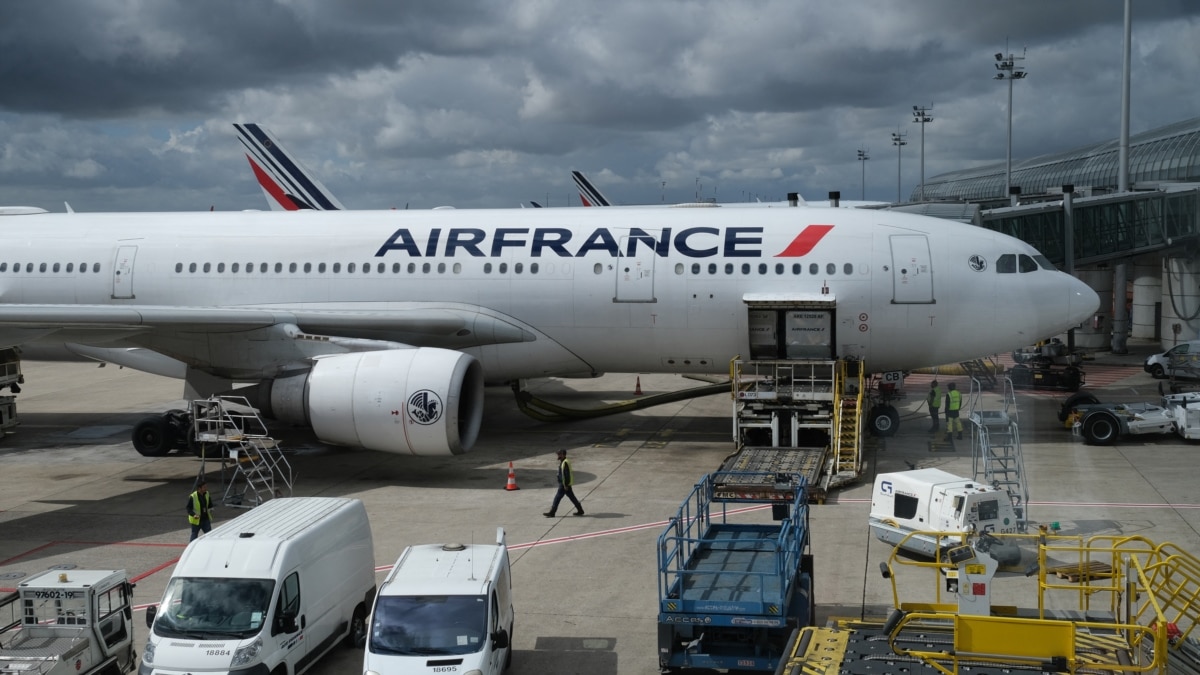Escalating Travel Chaos as French Air Traffic Controllers Continue Strike
The second day of a two-day strike by French air traffic controllers has caused widespread disruption, affecting not only travelers departing from or arriving in France but also those flying over the country. As summer holidays begin, the strike has left hundreds of thousands of people stranded and facing significant travel challenges.
Paris airports have experienced even greater disruptions compared to the first day of the strike on Thursday. The action was initiated by two minority unions, which are demanding improved working conditions and better staffing levels. The timing of the strike is particularly problematic, as it coincides with the last day of school in France before the summer break, with many families planning early trips.
According to the French aviation authority (DGAC), 933 flights were canceled on Thursday, representing about 10% of all scheduled flights. At major Paris airports, the cancellation rate increased to 25%. On Friday morning, around 1,000 flights had been canceled after DGAC advised airlines to cut 40% of their flights to manage the situation.
The government has strongly criticized the strike, with Prime Minister Francois Bayrou stating that “choosing the day when everyone goes on holiday to go on strike at air traffic control is taking the French hostage.” Transport Minister Philippe Tabarot described the situation as “unacceptable,” emphasizing that the strike impacts the well-being of more than 500,000 people.
UNSA-ICNA, the second-largest labor group in the sector, organized the strike to protest against chronic understaffing, the introduction of a clock-in system, outdated equipment, and what they describe as “toxic management practices” that compromise safety and calm. The third-largest union, USAC-CGT, also joined the action, although the main union, SNCTA, did not participate.
The effects of the strike extend beyond France, as the disruption has led to hundreds of flight cancellations over the country. The European Airlines for Europe (A4E) association reported that 1,500 flights were canceled across Europe on Thursday and Friday, impacting 300,000 passengers. A4E’s chief, Ourania Georgoutsakou, expressed concern over the impact on holiday plans, noting that French air traffic control already has some of the worst delay figures in Europe.
The strikes have also caused nearly 500,000 minutes of delays across Europe on Thursday, affecting almost 33,000 commercial flights. Ryanair, Europe’s largest airline by passenger numbers, reported canceling more than 400 flights. CEO Michael O’Leary called on the EU Commission to legally protect overflights during strikes, stating that 350 of the canceled flights would not have been affected if such protections were in place.
At Paris airports, passengers faced long lines and confusion as they tried to adjust their travel plans. Julien Barthelemy, a passenger traveling from New York to Marseille, said he was stuck at Charles de Gaulle Airport after his flight was canceled. He was waiting for a spot on a later flight, while others faced similar difficulties.
Lara, a 30-year-old traveler, shared her frustration after her planned flight from Paris to Berlin was canceled twice. She and her partner ended up purchasing more expensive train tickets to visit friends. Such stories highlight the growing tension and inconvenience caused by the ongoing strike.
As the situation continues to unfold, the strike has sparked debates about the need for better communication, improved working conditions, and stronger measures to prevent future disruptions. With the summer season in full swing, the impact of the strike is being felt far and wide, leaving many travelers frustrated and uncertain about their plans.







